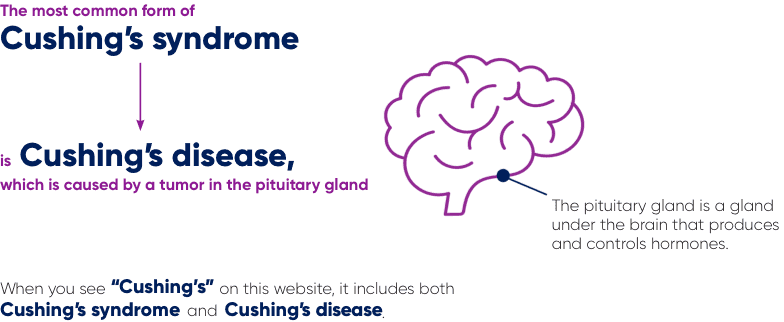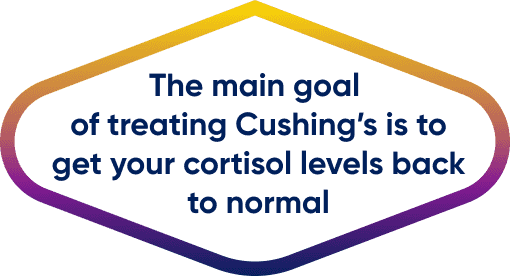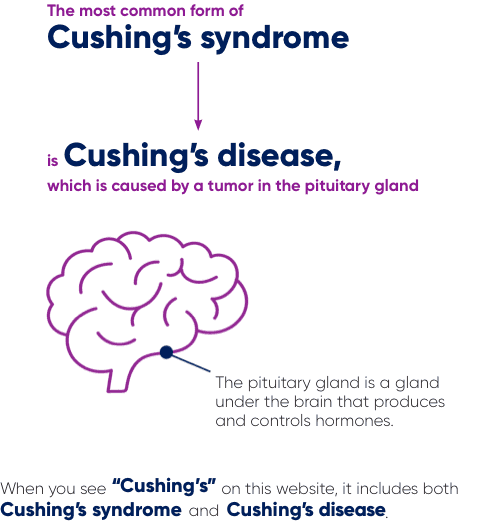
About Cushing's
Endogenous Cushing’s syndrome is a rare condition caused by too much cortisol in your body. “Endogenous” means that something inside your body causes too much cortisol production.

If you have been diagnosed with Cushing’s and are experiencing symptoms, ask your doctor if Recorlev® (levoketoconazole) may be right for you.
Cortisol is a hormone made by the adrenal glands—located on top of the kidneys—that plays an important role in the way your body functions, including:

Responding to stress

Controlling blood pressure

Changing protein, carbohydrates, and fat into energy
Irregular cortisol production can affect your entire body, including your bones and your immune, cardiovascular, and nervous systems.

Why is it important to control your cortisol levels?
Too much cortisol in your body caused by Cushing’s can be difficult to live with and may affect your overall health and quality of life
The impact of too much cortisol is both physical and emotional, and it may lead to:

Weight gain

Depression and feeling irritable

Irregular periods

Poor concentration

Fatigue
Talk to your doctor about the chances of an increase in testosterone from your medicine.

